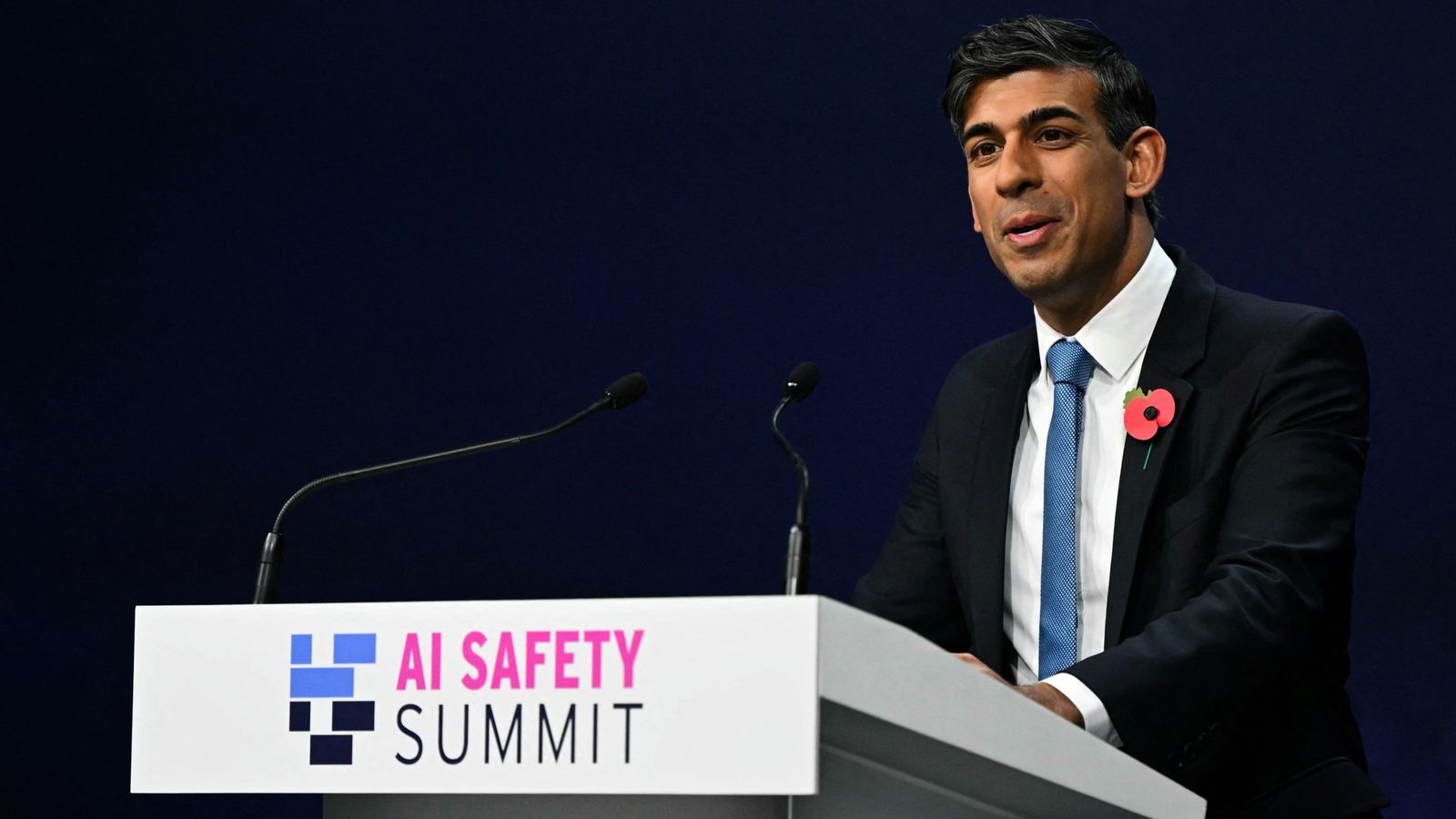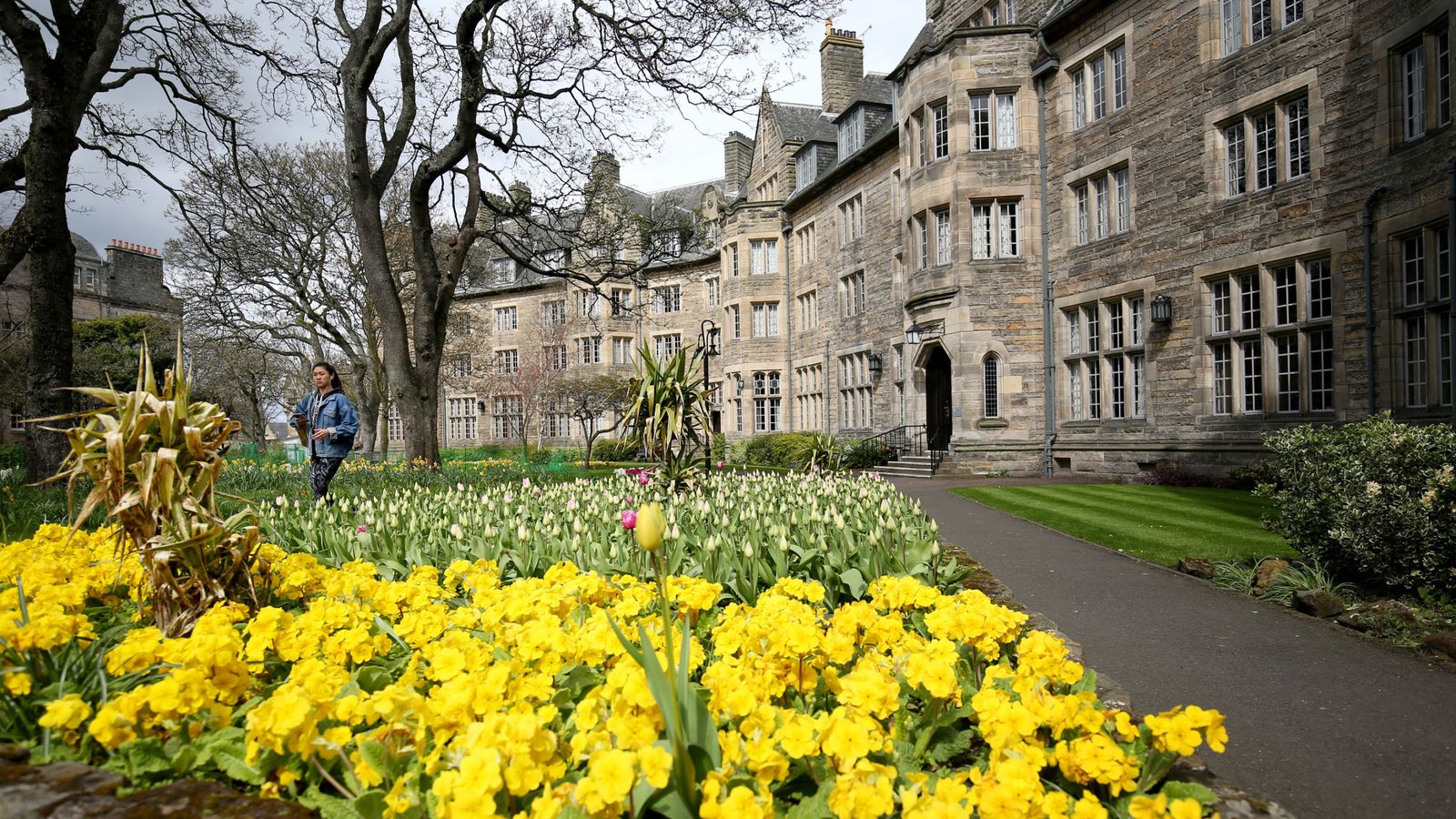Rishi Sunak has said the UK’s landmark AI safety summit will “tip the balance in favour of humanity” after tech companies agreed to work with governments to test the safety of their models before their release.
The prime minister said while the event at Bletchley Park was “only the beginning of the conversation”, it showed there was the “political will and capability to control the technology”.
He revealed governments and AI companies had reached a “landmark agreement” to test the safety of their models before they are released to the public.
Follow latest: UK has ‘led conversation’ to allow world access to benefits of AI
AI models like OpenAI’s ChatGPT and Google‘s Bard are trained on huge amounts of data to respond to prompts, learning patterns to make predictions.
One of the concerns is a lack of transparency around the data they are trained on.
“This is a new step that was necessary,” Mr Sunak told Sky’s science and technology editor Tom Clarke.
“In order to regulate this technology, to make sure it is safe, we have to have the capability to understand what these models are capable of and to do that safety testing and evaluation.”
He added: “We can’t expect companies to mark their own homework.”
The UK and US governments will establish their own AI safety institutes to carry out such testing, and work to share their findings.
PM: AI can ‘transform our lives’
Mr Sunak was speaking at a news briefing to close the event in Milton Keynes, which took place at the home of Britain’s Second World War codebreakers.
It brought together politicians, tech bosses, and academics to discuss challenges posed by artificial intelligence.
It resulted in the Bletchley Declaration, which saw 28 nations including the US and China agree to collaborate to research safety concerns around the world’s most capable AI models.
Mr Sunak said while the technology had the potential to “transform our lives”, impacting sectors from education to health care, it could present dangers “on a scale like pandemics and nuclear war”.
Be the first to get Breaking News
Install the Sky News app for free
The Bletchley Declaration says any threats are “best addressed through international cooperation”, and also set out plans for more global summits next year.
But there was little sign of a concrete approach to regulation or any suggestions of a pause in AI’s development, which experts including Elon Musk called for earlier this year.
It also did little to satisfy critics who warned Mr Sunak ahead of the summit he was too focused on hypothetical future threats, rather than present dangers like job losses and misinformation.
Please use Chrome browser for a more accessible video player
PM to hold one-on-one with Musk
Following the summit, the prime minister will host billionaire Musk for talks in Downing Street.
It will be streamed on the SpaceX and Tesla owner’s X platform.
Musk, who told Sky News AI is a “risk” to humanity, was one of the most high-profile tech bosses at the summit.
Please use Chrome browser for a more accessible video player
He did not appear overly impressed with the event, based on a post on X just as Mr Sunak’s news briefing began.
“Sigh,” he posted, alongside a cartoon casting doubt on governments’ willingness to collaborate.
OpenAI boss Sam Altman, whose company is behind the ChatGPT chatbot, was also at the summit.
Asked by Sky News whether he would agree to provide open access to his firm’s AI models, he said: “We do.”
Please use Chrome browser for a more accessible video player
US VP warns not to forget ‘everyday threats’
Mr Sunak had previously announced leading AI companies had agreed to share their models with the UK, with a government safety institute launched to research them and flag any concerns.
The White House detailed similar plans this week as part of a wide set of safeguards which include AI-generated content having to be watermarked to combat deepfake content.
US vice president Kamala Harris, who attended the UK summit on Thursday, has said “everyday threats” can’t be ignored despite fears around the more far-flung dangers.
Mr Sunak has been more cautious than the US about AI safety legislation, arguing it would risk stifling innovation.
Instead, the government has tasked existing regulators like the Competition and Markets Authority, Ofcom, and the Health and Safety Executive to apply key principles around safety, transparency, and accountability to AI.







